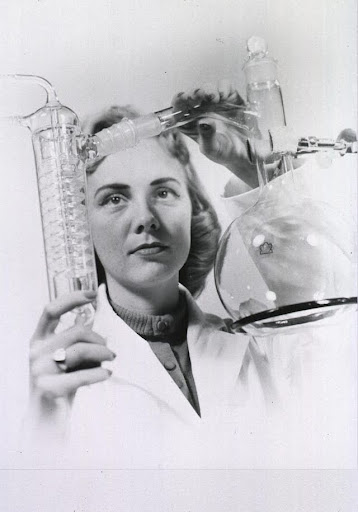 As a pharmacist, one question that Marla Ahlgrimm was asked throughout her career that she could never quite answer was, “who was the first pharmacist in history?” Unfortunately, she still doesn’t have an answer, but says that somewhere along the line, herbal practitioners and healers began to blur the line to become the modern pharmacists of today.
As a pharmacist, one question that Marla Ahlgrimm was asked throughout her career that she could never quite answer was, “who was the first pharmacist in history?” Unfortunately, she still doesn’t have an answer, but says that somewhere along the line, herbal practitioners and healers began to blur the line to become the modern pharmacists of today.
Ancient Mesopotamia
Around 2100 BCE, some individuals created medicinal concoctions used to treat a host of concerns. We know this because of clay tablets left behind, says Marla Ahlgrimm. This is typically considered the first evidence of people specializing in what we now know as pharmaceuticals.
Ancient Egypt
Moving ahead more than 500 years, ancient Egyptians also had detailed medical knowledge, especially on how to use plant-based remedies to help common ailments. Marla Ahlgrimm explains that ancient Egyptian royalty likely kept these dedicated practitioners close at hand.
Fifth Century BCE – Greece
By the time Hippocrates made his entrance into the world, people had begun to get a grasp of medicine and how certain herbal remedies affected human bodies. Marla Ahlgrimm explains, however, that herbs with medicinal properties were still typically prepared by religious healers associated with a revered temple or religious sect.
The Roman Empire
By the first century CE, Roman physicians began to form close relationships with those affiliated with the “officinae,” which is commonly regarded as the precursor to modern pharmacies.
Medieval Europe
Although very few happy stories have emerged from the first to the 15th centuries CE, a time full of death and disease, this is when apothecaries first became independent organizations. Marla Ahlgrimm explained that apothecaries formed guilds and helped to contribute to the modern medicine standards that we still use today.
18th Century Through Today
Today’s pharmacists have thousands of years worth of knowledge to cull from and are required to complete specialized education and pass licensing and exam requirements, says Marla Ahlgrimm.
How To Become A Pharmacist
While Marla Ahlgrimm cannot pinpoint the first official pharmacist, she can offer some advice for high school students considering pharmaceuticals as a career. She recommends speaking with your guidance counselor about taking the classes that you might need to be a strong contender for pharmacy school in the future. These include biology, chemistry, physics, foreign language – Latin is especially beneficial – and computer sciences.
 Marla Ahlgrimm also recommends that students interested in becoming pharmacists volunteer or intern at a local pharmacy and join local clubs and networking organizations that put them in the proximity of current professionals in the field.
Marla Ahlgrimm also recommends that students interested in becoming pharmacists volunteer or intern at a local pharmacy and join local clubs and networking organizations that put them in the proximity of current professionals in the field.
While the history of the pharmacist is one that can’t be told in its entirety, Marla Ahlgrimm says the future of medicine will rely heavily on pharmacists and the contributions they bring to the healthcare world.













 Marla Ahlgrimm has co-authored two ground-breaking books,
Marla Ahlgrimm has co-authored two ground-breaking books,